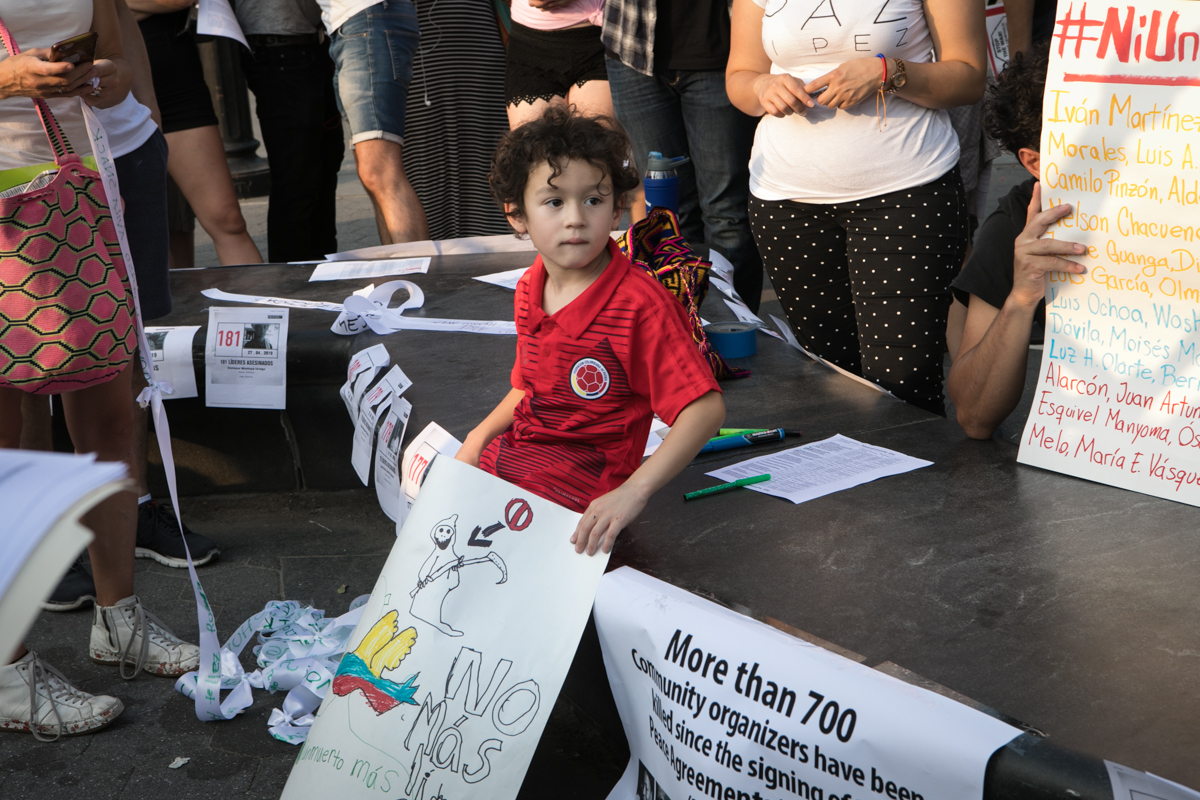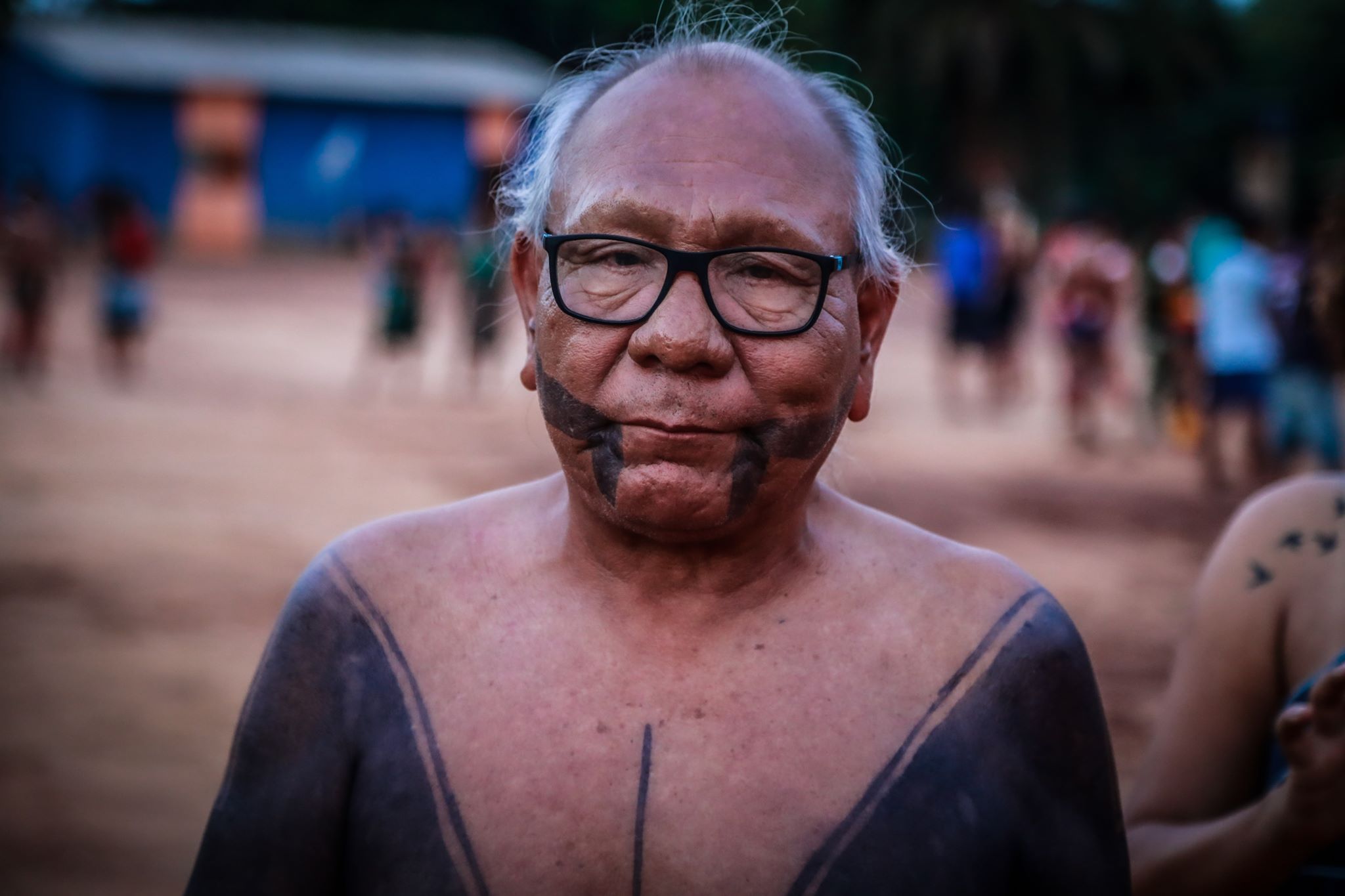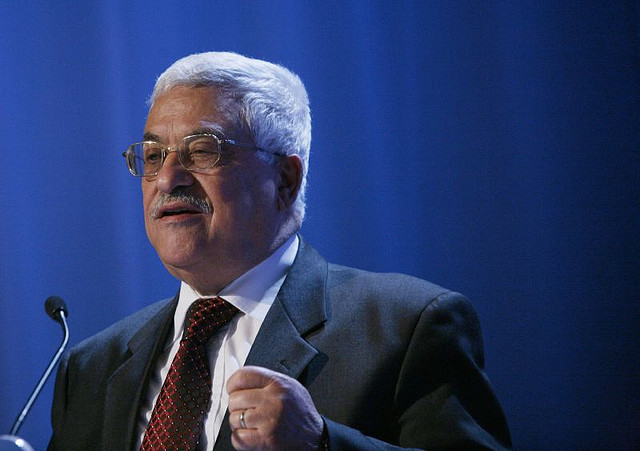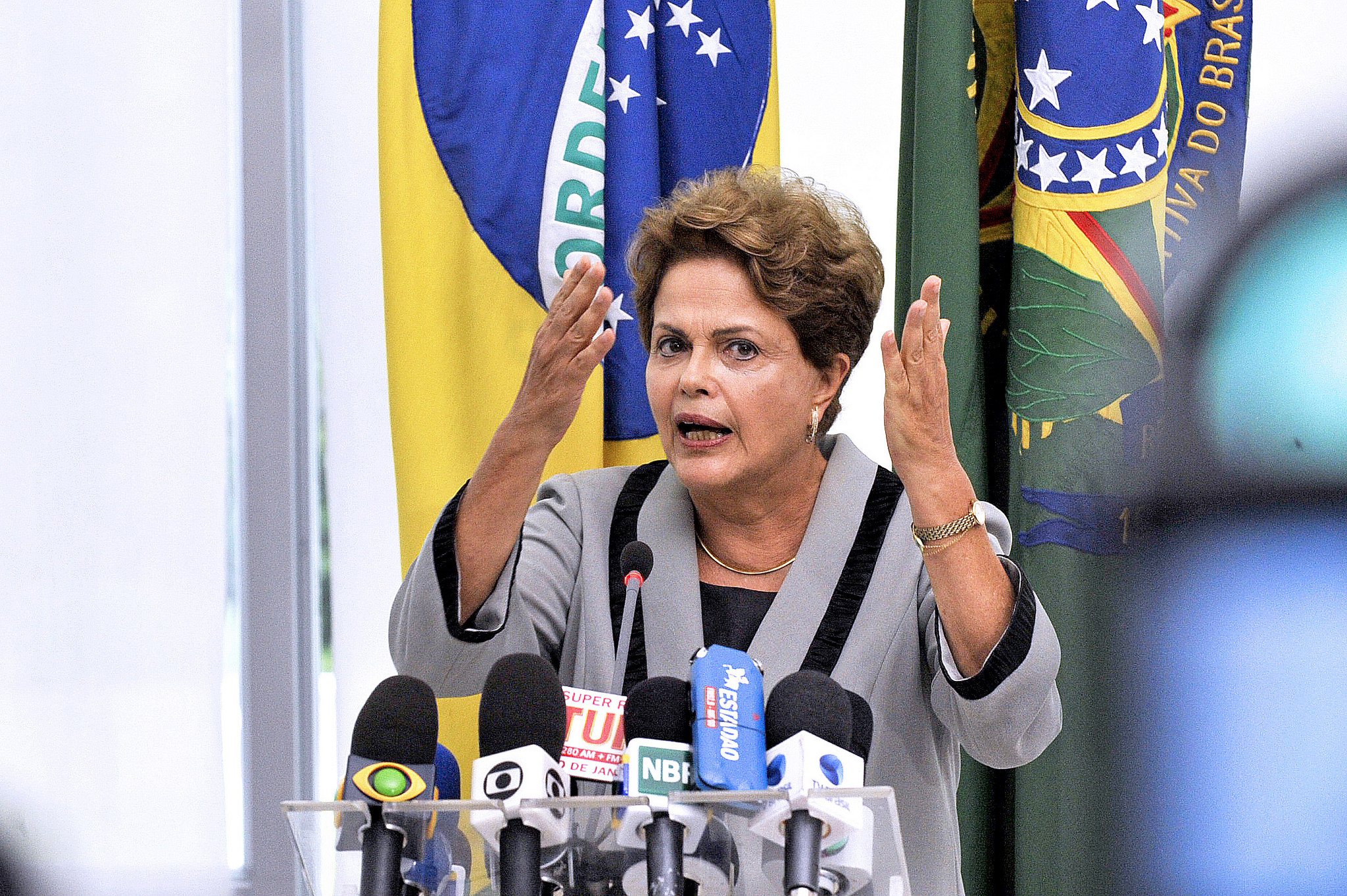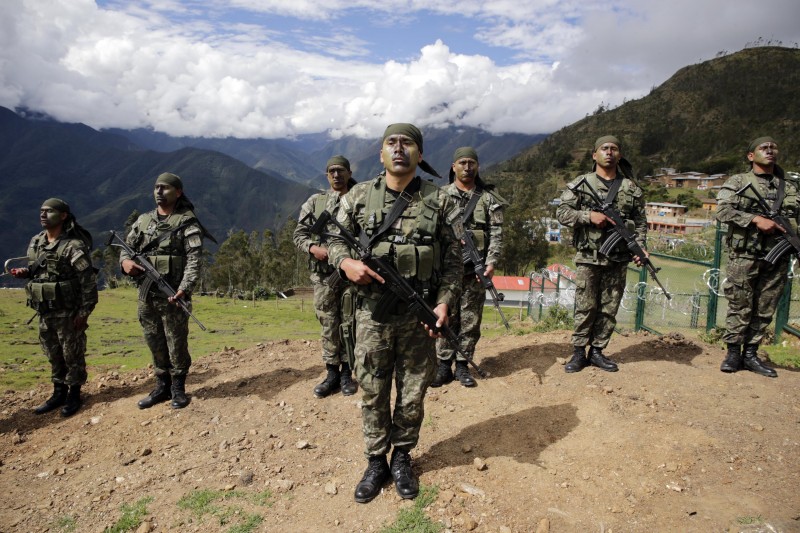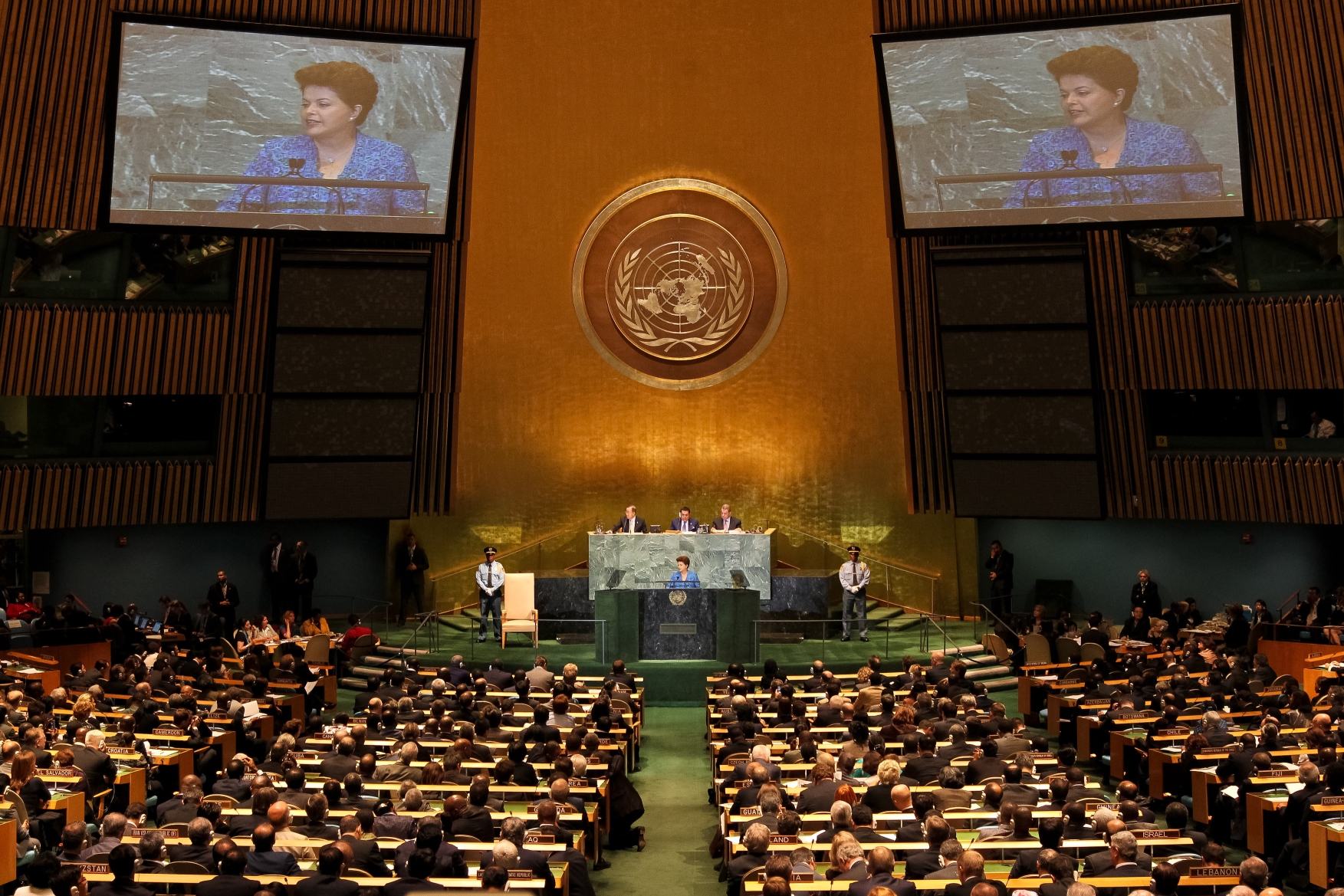
Colombia, News Briefs, Regions
In Search for the Next UN Secretary General, Women Fight for Recognition
October 15, 2015 By Camila Osorio
NEW YORK — Feminist activists, scholars and at least 45 United Nations member states are leading a campaign to make a woman the next U.N. secretary general in what would become “a watershed moment in the organization’s evolution,” according to Colombia’s U.N. ambassador. Leading that fight are Latin American diplomats and activists, from Colombia to Argentina.
Colombia’s U.N. Ambassador María Emma Mejía, who herself was the first woman to lead The Union of South American Nations as secretary general in 2012, has been the force behind the initiative to elect the first woman to the secretary generalship in the organization’s 70-year history.
Over the past several months, Mejía has been meeting with diplomats to gain the support of the 193 members at the General Assembly for the plan. She says that, after 16 men have held the position since 1948, a woman’s time has come, though she does not support any particular candidate.
“We have started a debate that neither the Security Council nor the General Assembly can ignore,” Mejia told Latin America News Dispatch.
Mejia’s initiative has found supporters from Bangladesh to Malawi, and both The New York Times and the Washington Post have published favorable editorials.
However, support from the permanent members of the Security Council remains elusive. France, the United Kingdom, Russia, China and the United States usually nominate a candidate without any public discussion, and the General Assembly has never voted against a candidate the Security Council has proposed.
“But the General Assembly could have more power,” explains Jean Krasno, a lecturer at Yale and City College in political science and the head of a civil society organization that has united activists and academics to elect a woman as the next secretary general.
The only time that the General Assembly has influenced the election of the secretary general, Krasno says, was when Egyptian Boutros Boutros-Ghali was elected in 1991. Several African states at the United Nations warned the Security Council that they would unite the General Assembly against the Security Council´s proposed representative if he or she were not African. The political strategy was effective because African states represent almost 25 percent of the General Assembly and they had the support from all 120 countries in the non-aligned movement.
This same strategy could work again if enough member states push, Krasno explained. “I think the member states are ready for this,” she said. “They have been meeting since April on this issue. This is going to be a hot issue in the fall.”
On Sept. 11, fresh support came from the U.N. working group Revitalization of the General Assembly. The group wrote a letter inviting member states to consider presenting women as candidates for the position.
“This is the first time there is a serious advocacy campaign on this issue,” said Argentine Viviana Kristevic, executive director of the Center for Justice and International Law, a legal-oriented NGO promoting human rights in the Organization of American States.
Kristevic said that having a woman leading the United Nations would boost other similar campaigns, such as G-Qual, a new global initiative Kristevic leads that seeks to promote gender parity in all international bodies, particularly in international courts. “So far, several countries have supported this campaign, from Costa Rica, to Panama, Switzerland, Norway and Argentina,” she said.
Among the candidates being considered are several women from Eastern Europe, including the current director general of UNESCO, Irina Bukova from Bulgaria, Croatian President Vesna Pucic and Lithuanian President Dalia Grybauskaite. The Eastern European option is a strong one since it is the one region from which a secretary general has never before been appointed.
Other regions are also pushing for women candidates. Several news outlets have bet on New Zealand’s Helen Clark, the head of the U.N. Development Program.
Of the Security Council members, only the United Kingdom and France have been willing to discuss the mechanism for selecting a new secretary general. Both countries have expressed their support for the 1 for 7 Billion campaign, a civil society initiative to make the election more democratic, including having official nominations and spaces at the United Nations for the candidates to explain their proposals.
“The permanent members want to continue to impose their criteria and undermine the General Assembly,” said Bill Pace, director of the World Federalist Movement — a historical global NGO- explained, who is also leading the 1 for 7 Billion campaign. “Russia, China and the U.S. have sent signals that they are not pleased with this discussion,” he said.
Renzo Pomi, Amnesty International’s U.N. representative, said these three members of the Security Council want a secretary general who will not go against their interests or those of their allies.
“They don’t want to lose the power to decide,” Pomi said. “Although the rules for electing the Secretary General are not set in stone, it has been very difficult to change them because of the power of the permanent members of the Security Council.”
Various experts have said the power of the Security Council has prevented excellent candidates from leading the world body, citing opposition to the annexation of Crimea, for example, which would invite a veto from Russia, or publicly expressing criticism of Israel, which would bring U.S. opposition. Finding a candidate committed to gender equality they say, is not one of the priorities of the five permanent members of the Security Council.
About Camila Osorio
Camila is a Colombian reporter based in New York City. She has published her work in The New Republic, WNYC, PRI, the Colombian website La Silla Vacía, among others. She is currently checking facts at The New Yorker.
